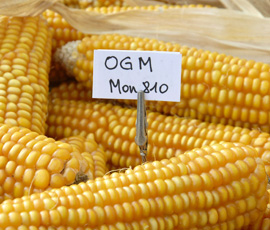EU must change GM stance, says Willetts

British ministers are urging Brussels to ease restrictions on growing GM crops to avoid becoming a “museum of the 20th century”.
UK universities and science minister David Willetts said EU rules on GM crops, stem cell research and nanotechnology were holding back ground-breaking work and ministers were worried the EU could fall behind.
“We believe GM crops can help make agriculture more efficient and also, just as importantly, more sustainable by, for example, reducing the use of pesticides and the use of fossil fuels,” said Mr Willetts, speaking at the Cheltenham Science Festival, as reported in The Times.
“There are just too many 21st-century technologies that Europe is just being very slow to adopt. One productive way forward is to have this discussion as part of a wider need for Europe to remain innovative, rather than a museum of 20th century technology.”
His comments echo those made earlier this year by DEFRA secretary Owen Paterson, who has thrown his weight behind GM foods.
Mr Paterson believes British farmers should be allowed to grow GM crops commercially – despite continued resistance in Europe against the technology. He has branded opponents to the technology as “humbugs”.
Nobel laureate James Watson, the co-discoverer of the structure of DNA, also defended GMs at the festival.
“The educated middle classes just don’t like genetics, and now they don’t want GM food either, because they’re worried about safety, but the truth is, it’s probably safer,” he said.
In recent months, major agricultural firms including BASF and Monsanto have withdrawn their GM operations from Europe amid growing frustration over the European Commission’s failure to back GM crops.
In the EU, only two GM crops have been approved for commercial growing – Monsanto’s pest-resistant maize, MON810 and BASF’s Amflora potato.
MON810 is grown mainly in Spain, but it is banned from cultivation in France, Germany, Greece, Austria, Luxemburg, Bulgaria, Hungary and Poland.
GM crops enter the UK food chain via animal feed, but they are banned from being grown commercially. However, an experimental trial of GM wheat is under way at Rothamsted Research.
But Peter Melchett, policy director of the Soil Association, accused government ministers of ignoring a recent Food Standards Agency (FSA) study that found two in three people want any food derived from animals fed on GM to declare the fact on the label.
“UK scientists have just announced they have achieved a 30% increase in wheat yield without using GM, demonstrating the truth of what opponents of GM have been saying for 20 years, namely that there is more potential in modern non-GM crop breeding technologies than there is in GM crops,” said Mr Melchett.
“GM is, in David Willetts’ words, a 20th century technology – where the UK and Europe need to lead is in the 21st century technologies of obtaining good yields from crops with far lower inputs of fossil fuel-based and mined fertilisers, growing crops with 80% lower greenhouse gas emissions and producing food with higher animal welfare, lower pollution and with more wildlife and jobs on farms.”

